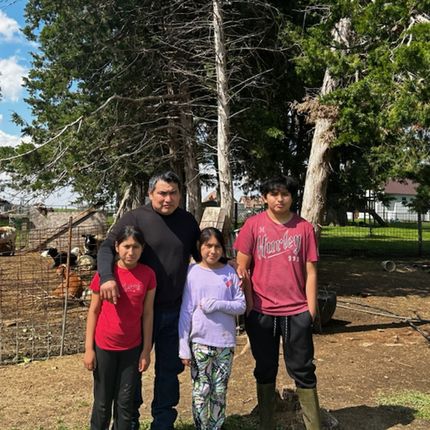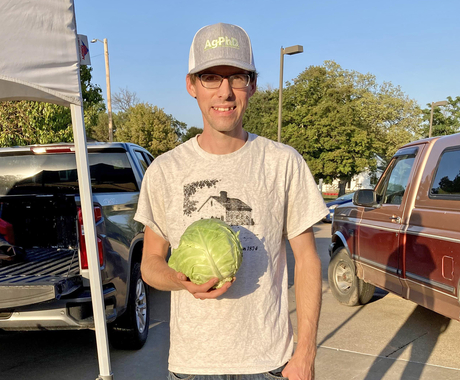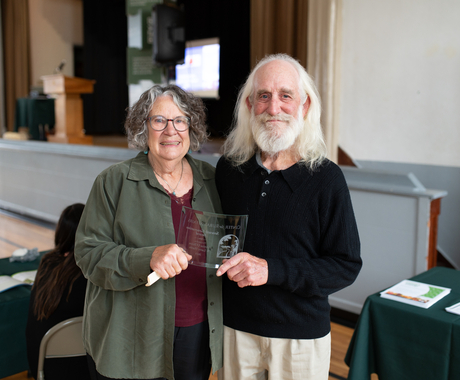Para la versión en español, oprima aquí.
Justino Borja began his agricultural journey without having much farming knowledge, though he has always had a great fondness for working in the field.
His passion for tending the land led Justino to learn from others and soak up all the knowledge they offered.
“I visited a few experienced farmers and learned from their methods,” he said. “I asked for advice, looked for good options and recommendations, and have always kept in mind that farming takes time and dedication.”
At first, Justino rented a small parcel of land to grow jalapenos, tomatoes, and other vegetables. After searching for his own place, he found land for sale online and now works his operation, Las Gemelas, with his family. Today, he has a 2-acre spread outside of West Point, Nebraska, where he grows vegetables and raises chickens, sheep, and goats.
“Being able to find my own land to farm on and getting enough water for my plants and animals was a barrier that took time to overcome,” said Justino. “But the animals sell very well, and they are always breeding.”
Justino advertises his products by word of mouth and sells to the public marketplace as well as to friends and acquaintances.
He is interested in buying more land to expand his livestock. He has talked with Center for Rural Affairs Lending Services staff and contacted the U.S. Department of Agriculture (USDA) to learn about applying for a Farm Service Agency loan. He also obtained information about the requirements to work with USDA on other programs, and he suggests USDA offer more access to agricultural benefits.
Recently, Justino was highlighted as an example to inspire and educate Latino beginning farmers.
This case study series, published by the Center, showcases three Latino farmers in Nebraska, including Justino. The series presents how they run their operations, what they produce, and lessons they have learned that might be helpful and educational to other aspiring Latino farmers. The Center has been able to assist by providing resources and training opportunities.
Lucia Schulz, community organizing associate with the Center, has worked with each of the farmers. She says each has a different way of running their operations, and their different styles of approaching, managing, and levels of experience make each of them worthy of being showcased.
“When he first began farming, Justino didn’t know where to start,” Lucia said. “Now, with his persistent yet consistent attitude, he has been able to successfully sell his goats directly to consumers.”
To learn more about Justino, check out our case study.





